Oil spill in the Gulf of Mexico
Categories: Catastrophes | Ecology | North America
By Pictolic https://pictolic.com/article/oil-spill-in-the-gulf-of-mexico.htmlOn April 20, 2010, 80 kilometers off the coast of Louisiana in the Gulf of Mexico, an explosion occurred on the Deepwater Horizon oil platform, killing 11 workers, the rig itself collapsed, and tons of crude oil poured into the ocean. About 5 million barrels of oil have entered the Gulf of Mexico, polluting the shores, crushing the economies of cities and destroying the environment.
The study of the disaster is still ongoing, the problems of the effectiveness of dispersants and the impact of long-term consequences on human and animal health are being considered.
The oil spill that followed the accident became the largest in the history of the United States and turned the accident into one of the largest man-made disasters in terms of negative impact on the environmental situation.
In this post, we will look at what happened before and one year after this disaster.
(39 photos in total)
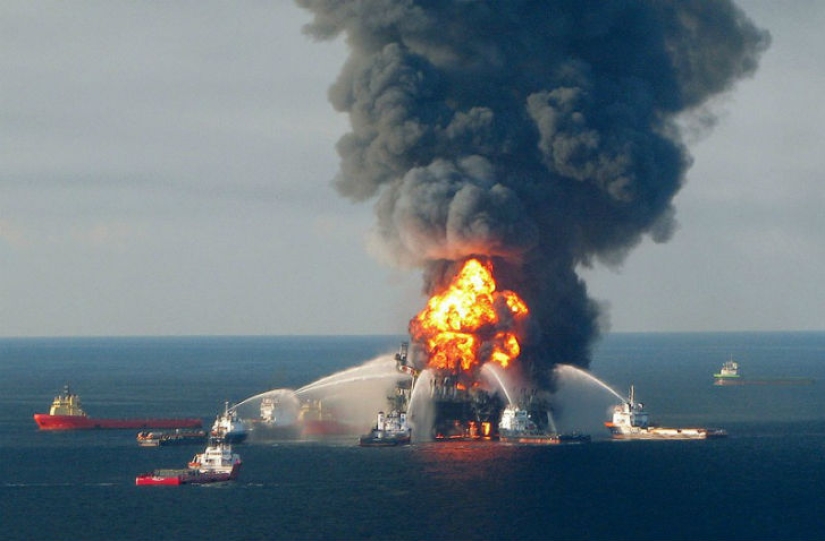
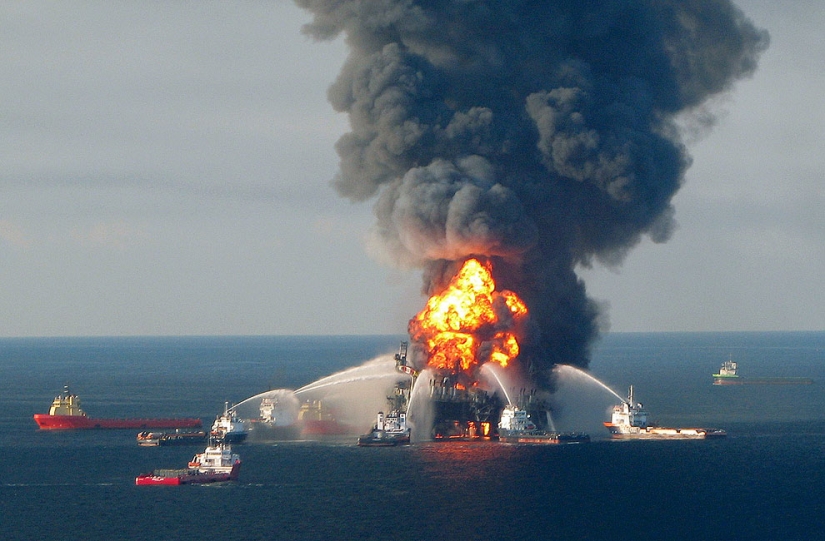
Firefighting vessels fight a fire at the Deepwater Horizon rig off the coast of Louisiana on April 21, 2010. (Reuters/U.S. Coast Guard)
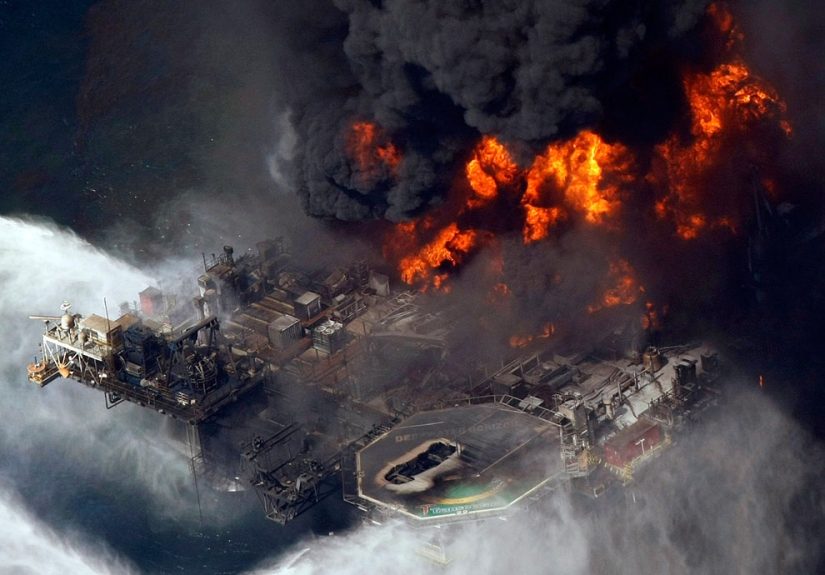
The burning Deepwater Horizon tower in the Gulf of Mexico, 80 km southeast of Venice, Louisiana, on April 20. (AP Photo/Gerald Herbert)
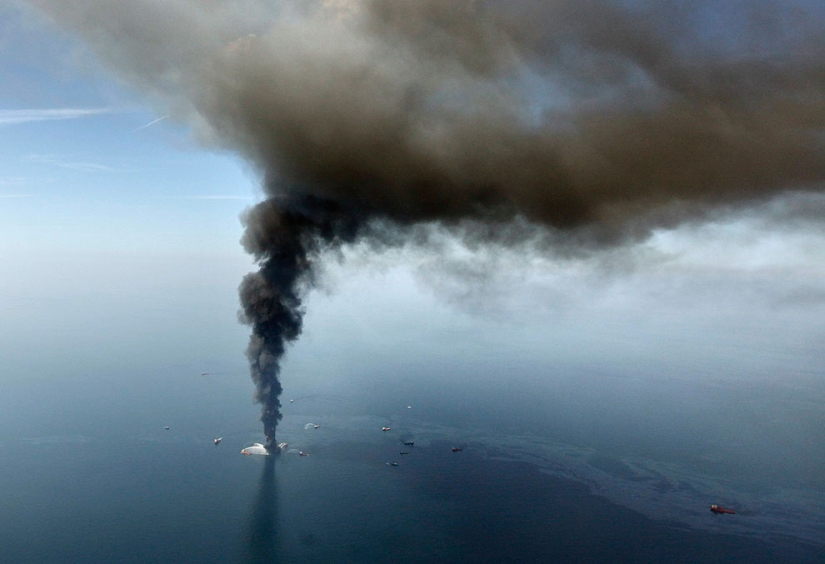
The burning tower on April 21, 2010. (AP Photo/Gerald Herbert)
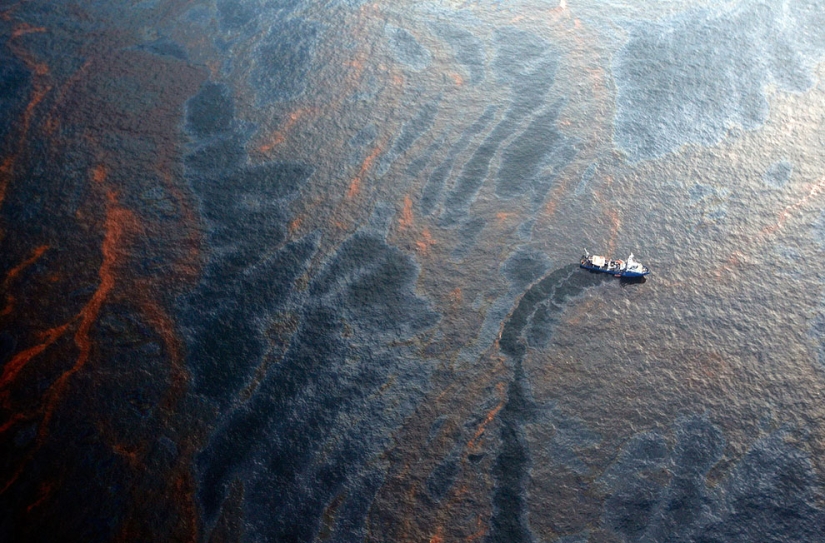
The vessel collects oil after an explosion at the Deepwater Horizon rig on April 28, 2010. (Chris Graythen/Getty Images)
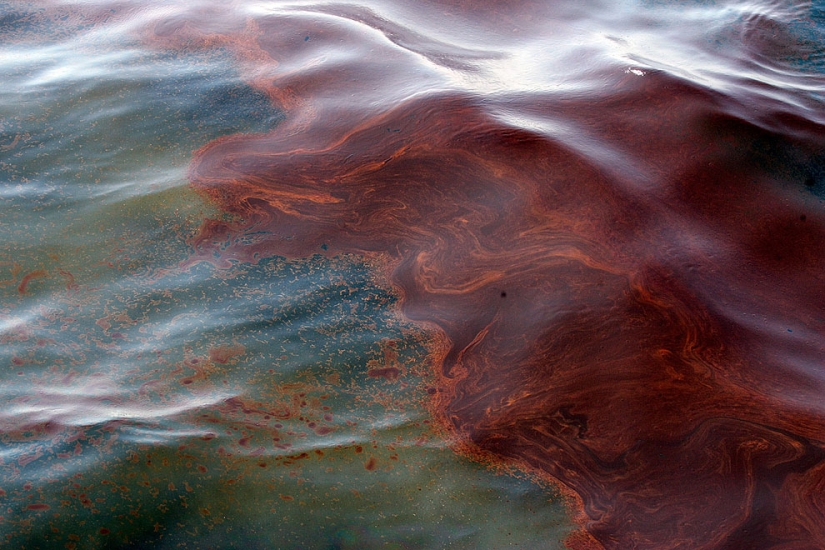
Oil leak in the Gulf of Mexico on April 27, 2010. (AP Photo/Patrick Semansky)
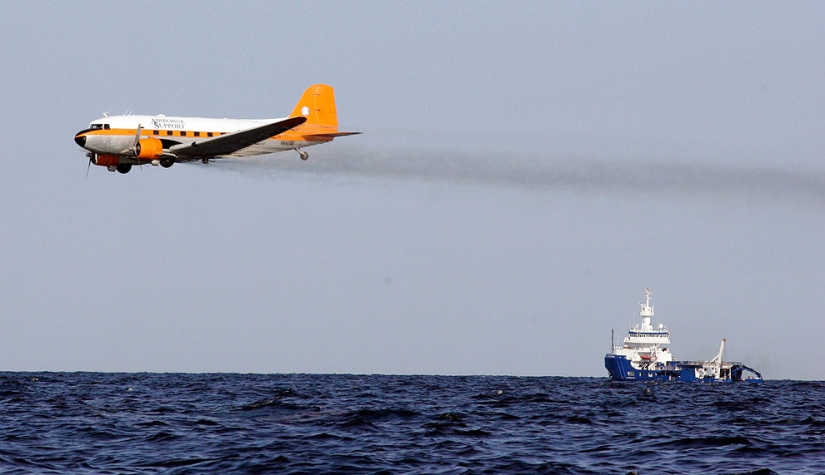
A dispersant-spraying aircraft over the waters of the Gulf of Mexico off the coast of Louisiana. (AP Photo/Patrick Semansky, File)
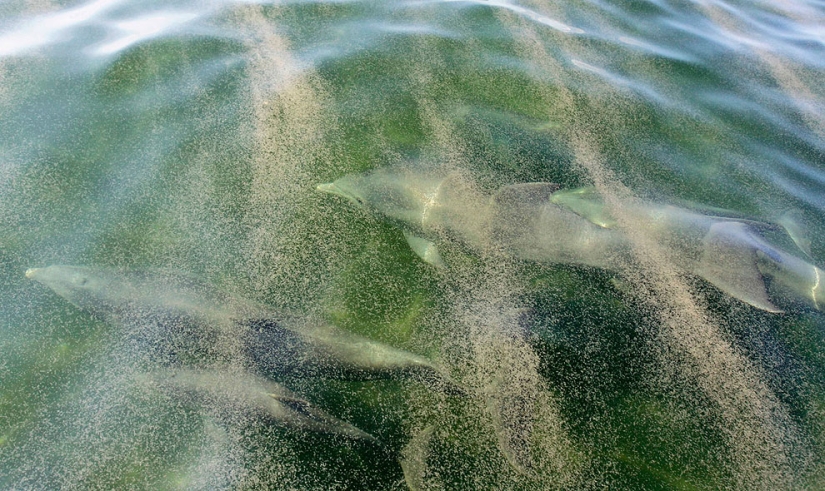
A flock of dolphins in the oil water of the Bay of Chandele. (AP Photo/Alex Brandon)
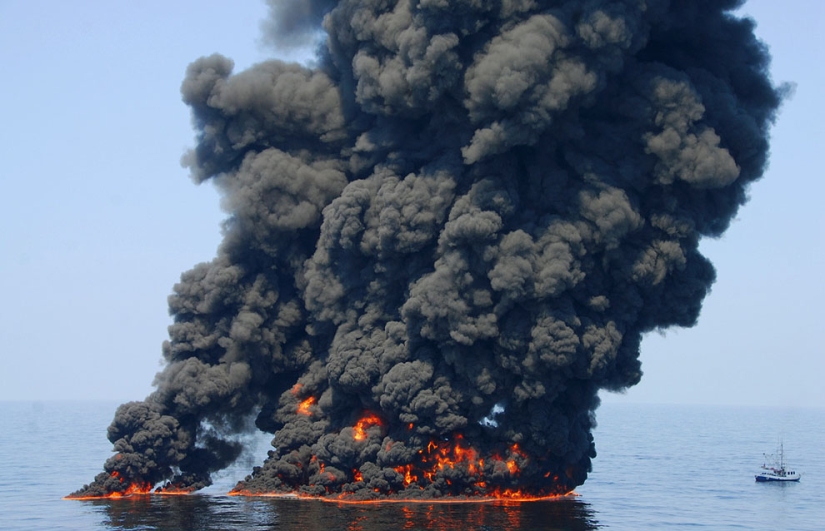
A column of smoke from burning oil off the coast of Louisiana on June 9, 2010. (Reuters/Petty Officer First Class John Masson/U.S. Coast Guard)
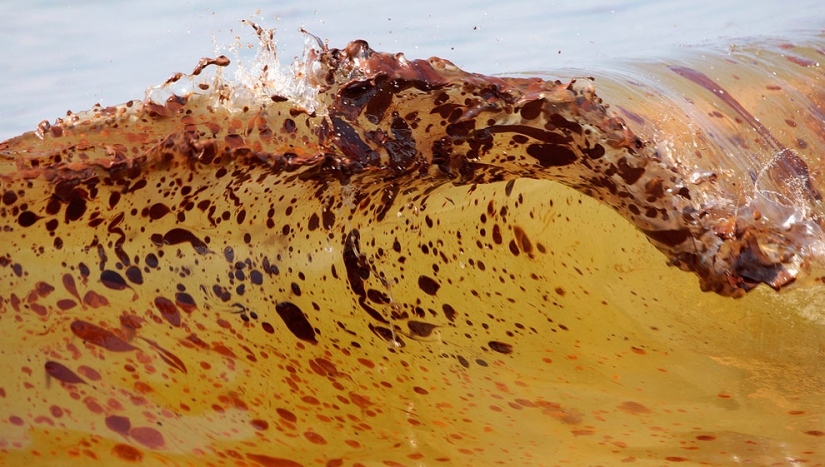
Crude oil on the shore of Orange Beach in Alabama, June 12, 2010. A large amount of oil reached the shores of Alabama, leaving behind puddles with a density of 13-15 cm in some places. (AP Photo/Dave Martin)
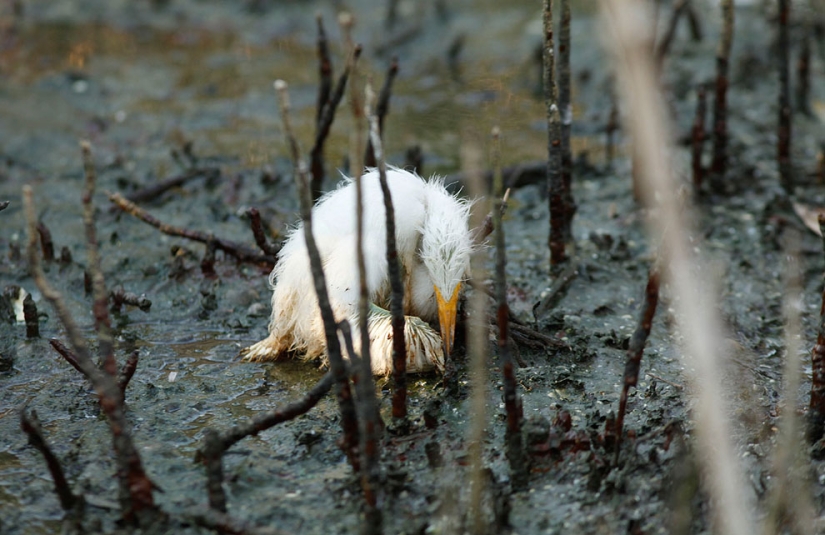
A young heron dies in oil-contaminated thickets after an oil leak in the Gulf of Barataria on May 23, 2010. (AP Photo/Gerald Herbert)
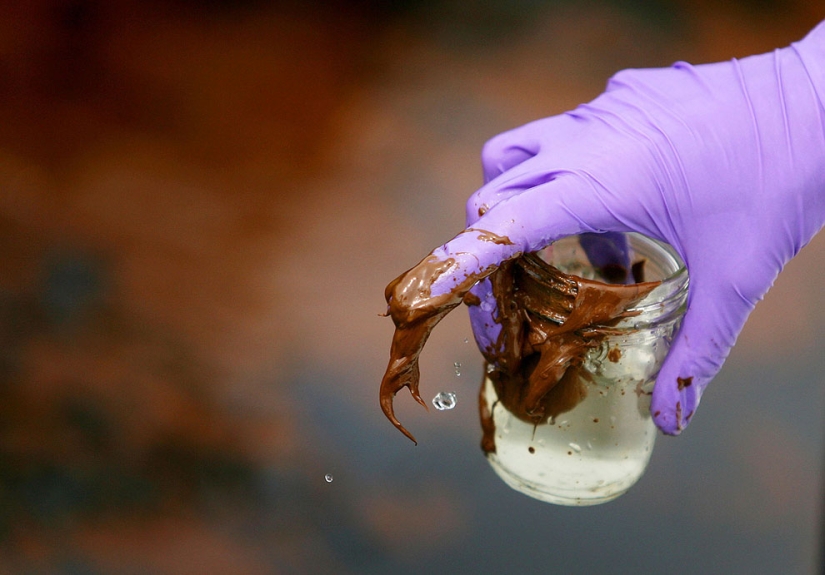
Environmental Protection Foundation expert Angelina Freeman takes a sample of oil in the Gulf of Barataria. (Reuters/Sean Gardner)
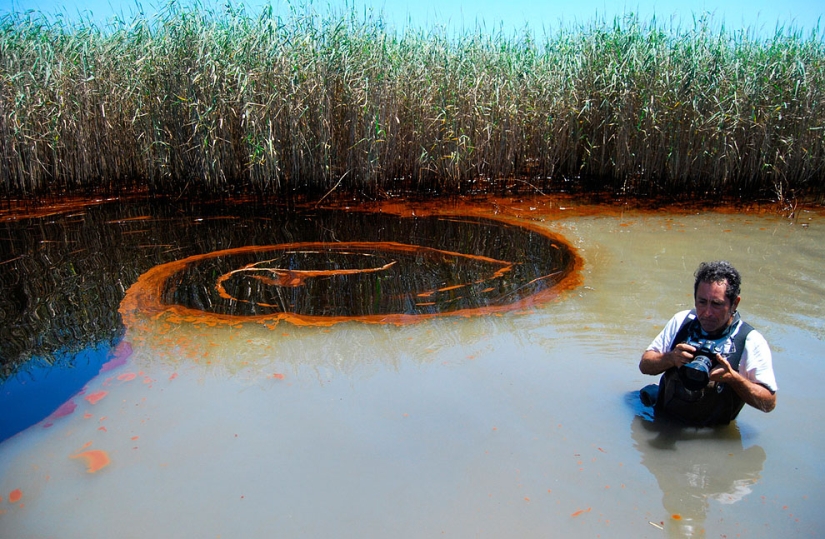
Reuters photographer Lee Celano in an oil-contaminated thicket near Pass-a-Loutre, Louisiana, May 20, 2010. (Reuters/Matthew Biggs)
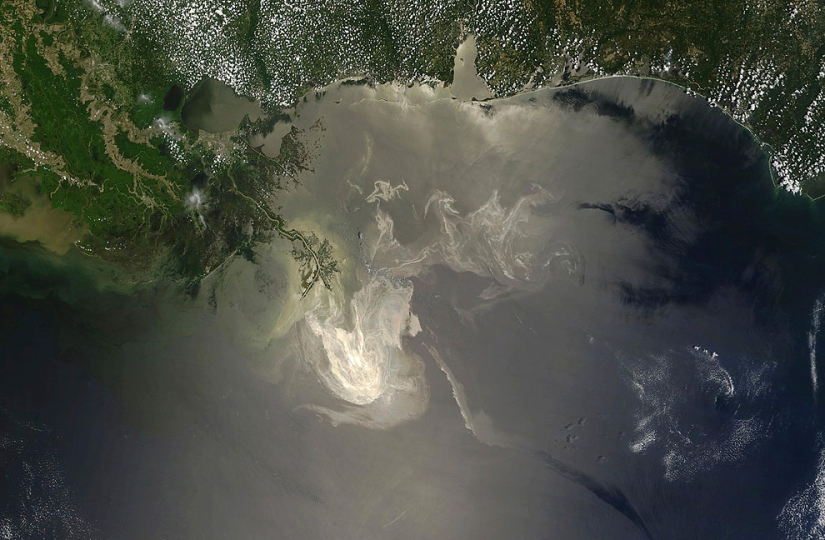
A picture of the disaster in the Gulf of Mexico from a NASA satellite. (Reuters/National Oceanic and Atmospheric Administration)
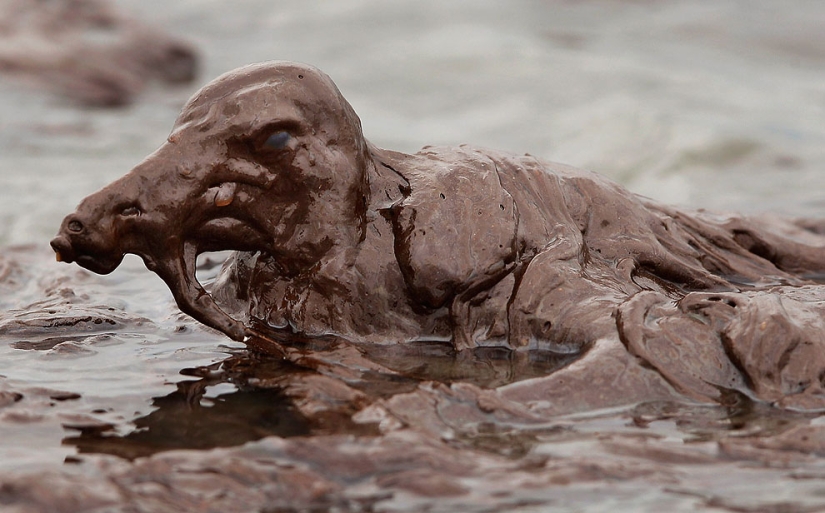
An oil-covered bird on the beach of East Grande Terre on June 3, 2010. (AP Photo/Charlie Riedel)
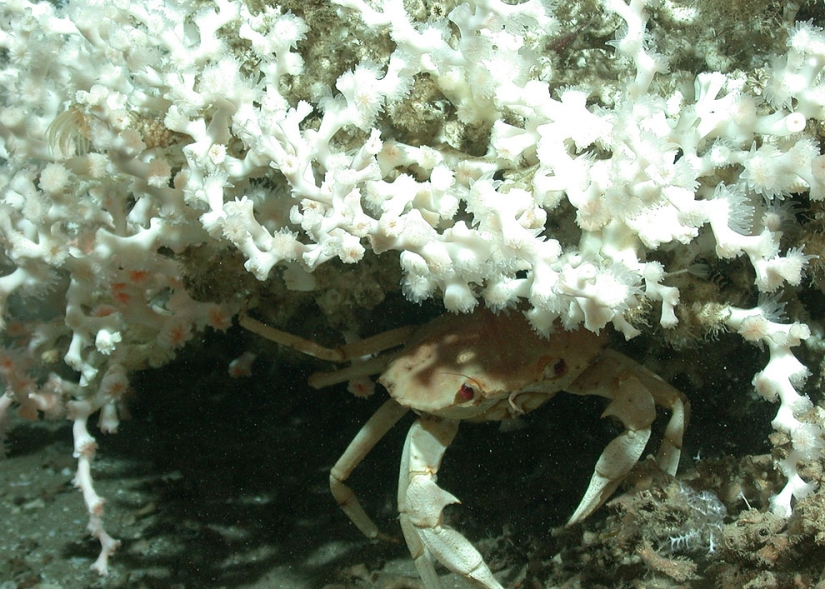
Underwater corals at the bottom of the northern part of the Gulf of Mexico, near the site of an oil leak in September 2010. Scientists are checking whether the disaster has harmed the corals. (AP Photo/Discovre Team 2010)
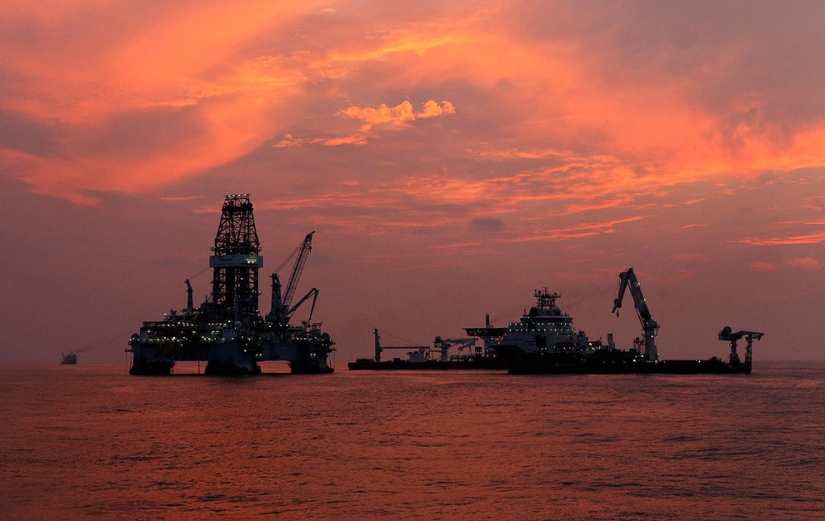
Vessels helping to drill an inclined well at sunset on September 4, 2010. (AP Photo/Patrick Semansky)
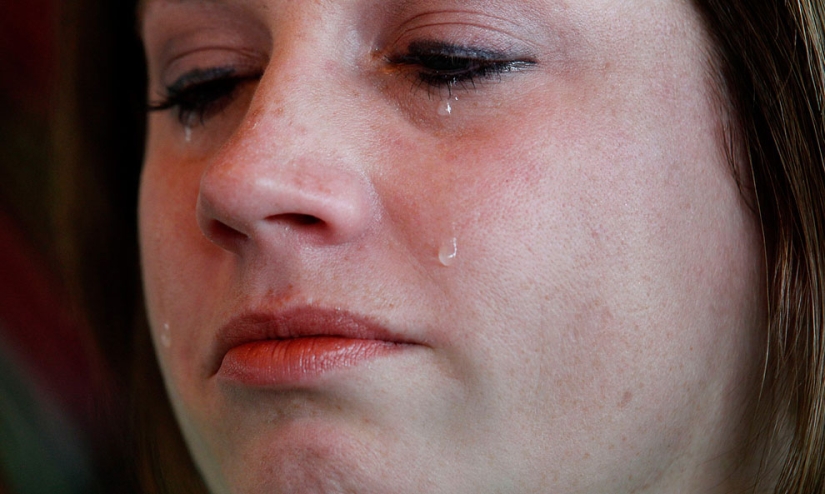
Courtney Kemp, 27, mourns her husband Roy Watt Kemp, who was killed in an explosion at the Deepwater Horizon rig, in Jonesville, Louisiana. (AP Photo/Gerald Herbert)
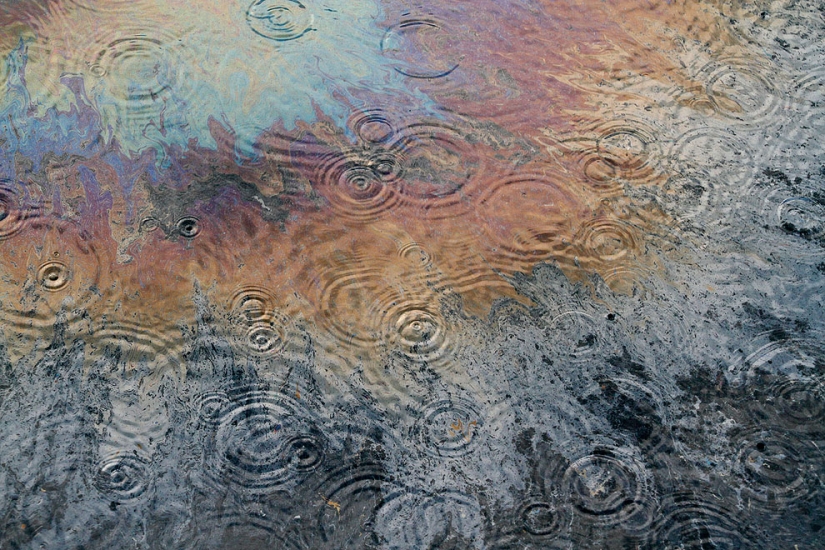
Raindrops on an oil puddle near the crash site. (AP Photo/Patrick Semansky)
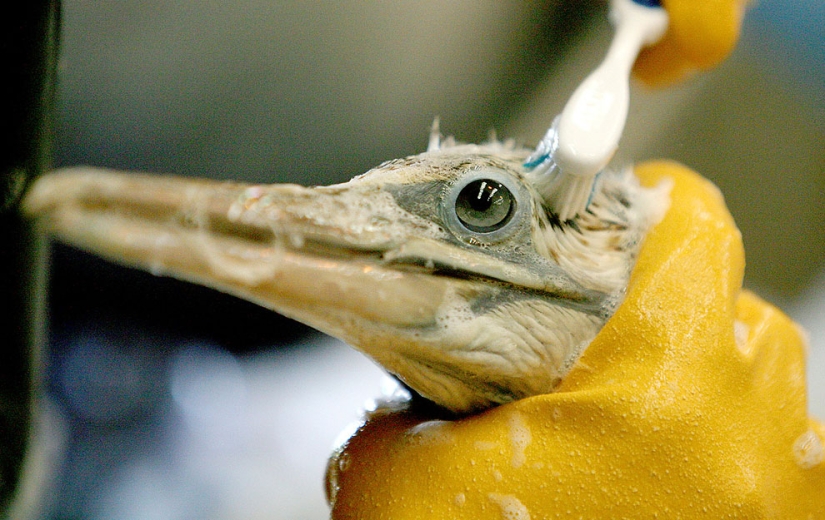
A northern booby affected by an oil leak is washed at the Wildlife Rescue Center in Fort Jackson on July 1, 2010. (Reuters/Sean Gardner)
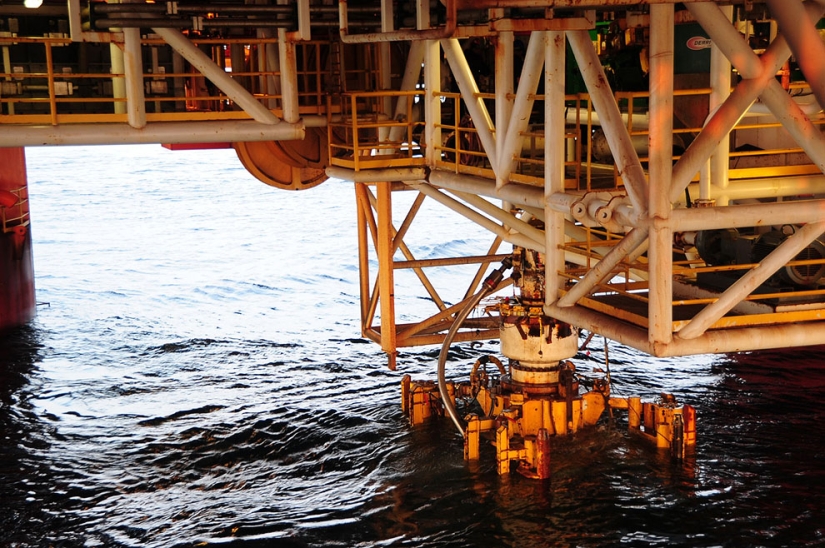
The Q4000 vessel drags a blowout valve damaged by an explosion on September 4, 2010. The valve, which was removed from the tower and replaced with a new one, will be taken for examination. (Reuters/Petty Officer 1st Class Thomas Blue/U.S. Coast Guard)
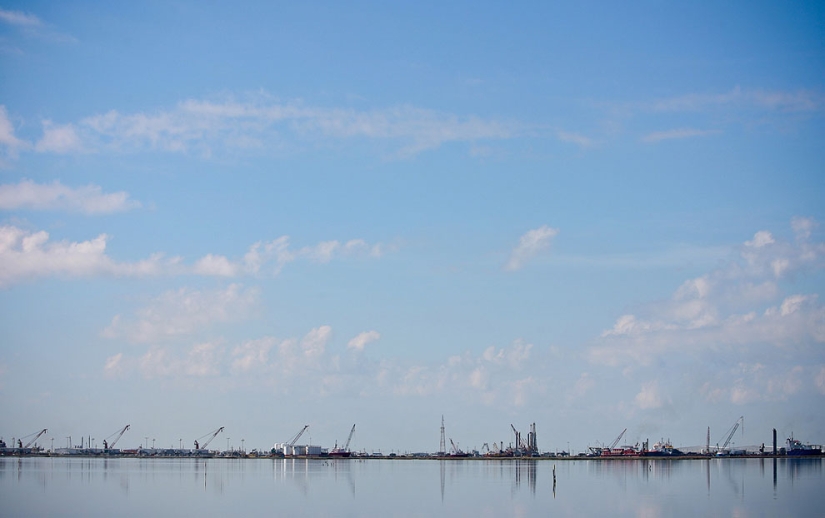
Hundreds of cranes and vessels in the quiet waters of the port of Fourchon on December 3, 2010 in Golden Meadow, Louisiana. The bustling port froze after the ban on drilling in the Gulf of Mexico. (AP Photo/Kerry Maloney)
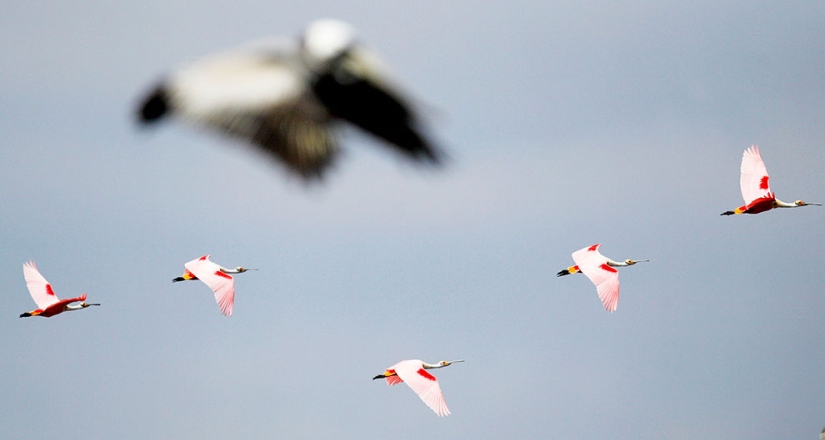
Healthy pink spoonbills over Cat Island in Barataria Bay, near Myrtle Grove, March 31. (Reuters/Sean Gardner)
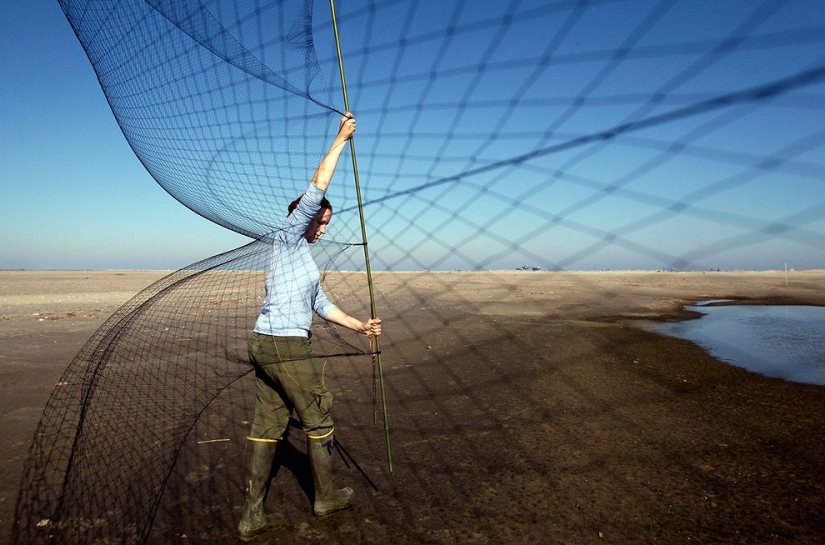
Tulane University ecologist Jessica Henkel sets up a net to catch incoming birds to collect blood, faeces and feathers, on Fourchon Beach on April 1. This is part of a research project on the effects of an oil leak in the Gulf of Mexico that may affect birds staying here during migration. "It's easier to spot a dead pelican on the beach than the consequences of a disaster that may manifest in the future," says Jessica. (AP Photo/Patrick Semansky)
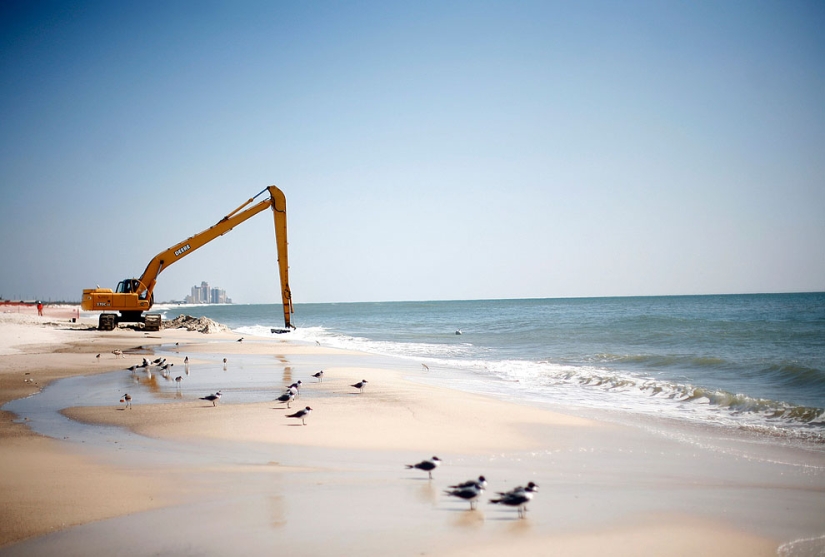
Workers clean up oil at Perdido Key National Park in Pensacola, Florida, on March 10. Work on cleaning beaches along the Gulf of Mexico is still ongoing. (Eric Thayer/Getty Images)
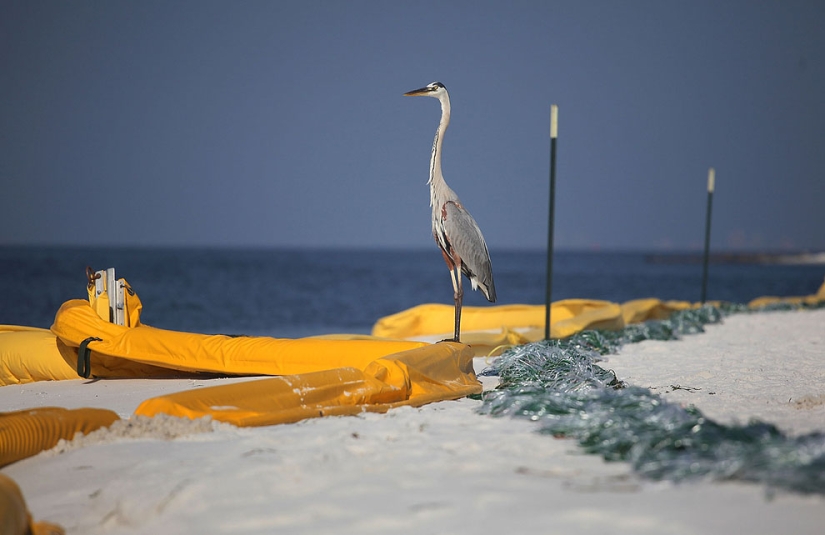
A large blue heron on a barrier used to protect the beach from oil leaks from the Deepwater Horizon rig, June 7, 2010 in Pensacola, Florida. (Joe Raedle/Getty Images)
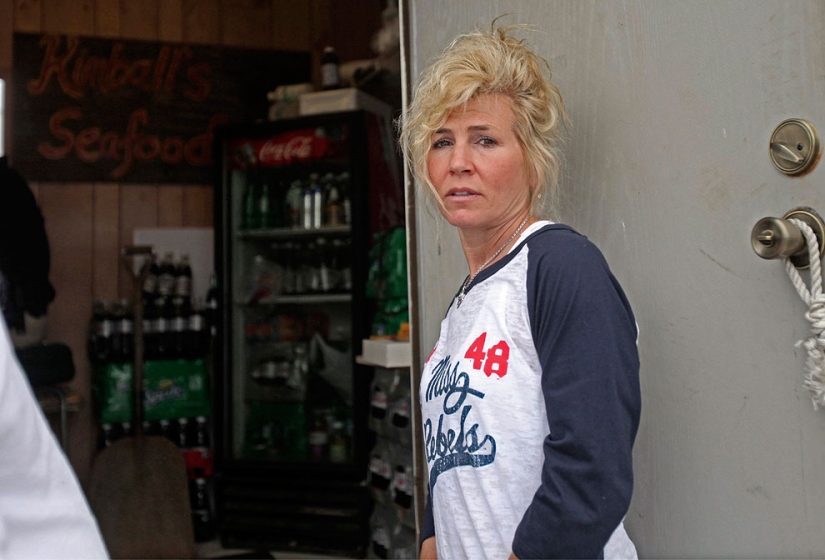
Darlene Kimball, owner of the marine products company, greets customers at the company's office in Pass Christian, Mississippi, on March 29. Kimball, who has not been reimbursed for the losses received after the explosion at Deepwater Horizon, is afraid to even think about where the local government spent BP funds. (AP Photo/Jason Bronis)
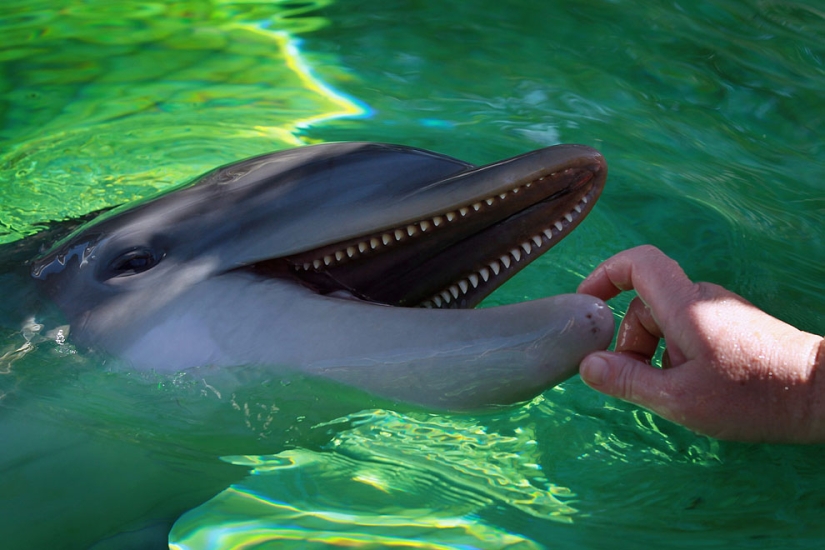
A dolphin named Louis at the Dolphin Research Center communicates with veterinarian Kara Field on February 8 in Marathon, Florida. The dolphin was found on September 2, 2010 — it washed up on the beach in Port Fourchon in Louisiana, it was completely soaked in oil. Since then, he has been taken care of at the Marine Mammal Research and Education Center in the Florida Keys. Louis arrived at the research center after being brought back to life at the New Orleans Institute. (Joe Raedle/Getty Images)
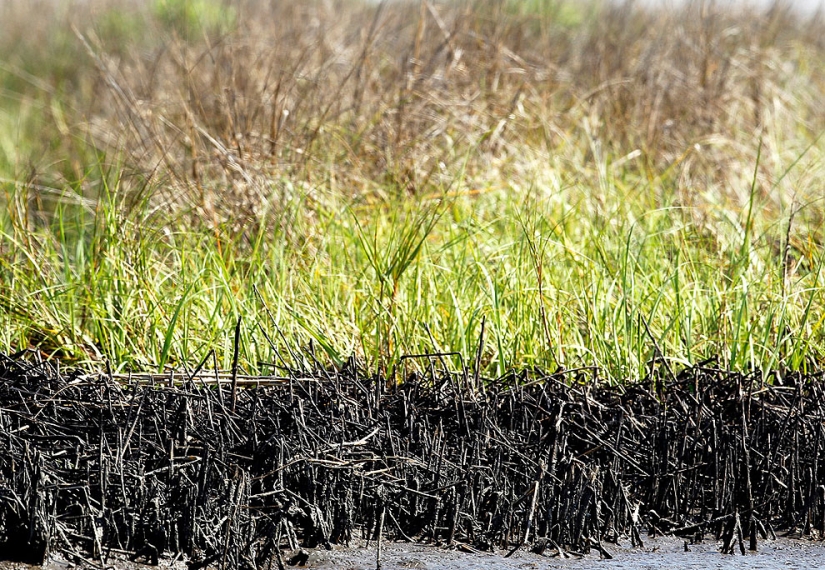
Oil-covered dead grass mixed with newly grown in Barataria Bay, near Myrtle Grove, Louisiana, on March 31. (Reuters/Sean Gardner)
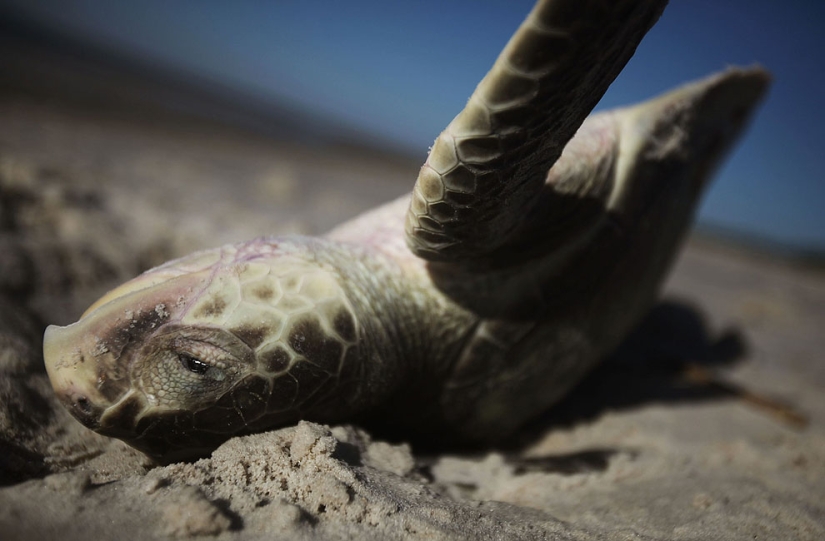
A dead sea turtle washed ashore in Pass Christian on April 16. Local activist Shirley Tillman found 20 dead turtles in Mississippi in April alone. (Mario Tama/Getty Images)
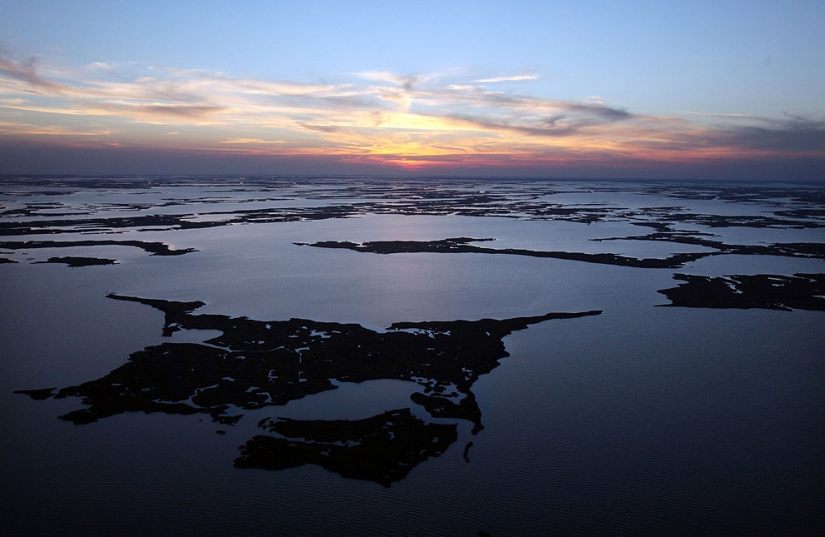
Sunset over swampy areas in the Bay of Barataria on April 13. The Bay of Barataria with its marshes suffered the most as a result of the oil leak from the Deepwater Horizon. (Mario Tama/Getty Images)
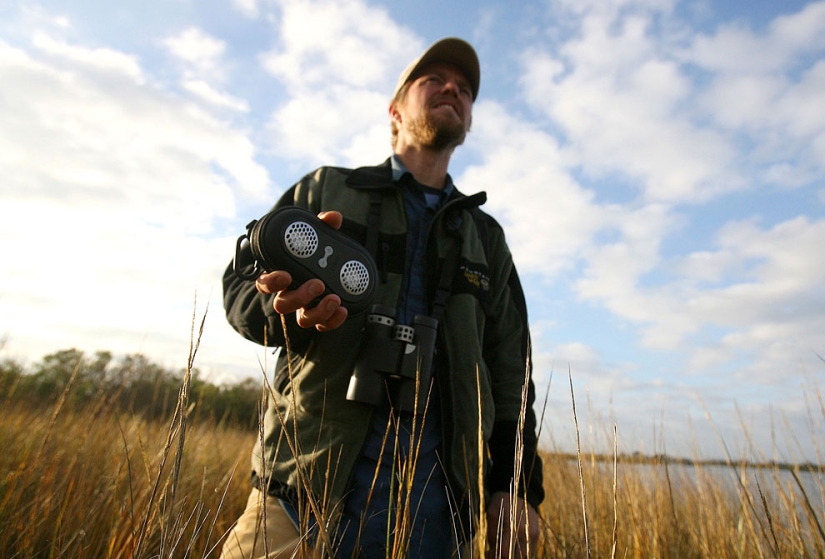
Hans Holbrook in the swamps with speakers from which birdsong is heard, at the annual Christmas bird count in Grand Isle, Louisiana, December 22, 2010. 60 thousand bird lovers from all over the western hemisphere flock here in winter to count the birds in these territories and hand over the lists to the Audubon society. This tradition has been going on for 110 years. (AP Photo/Sean Gardner)

Guests enjoy seafood from the Gulf of Mexico during the "Lunch on the Sand: A Celebration of the Gulf" event in Gulf Shores, Alabama, on April 17. The famous chef Guy Phiri set a table for 500 people in honor of cleaning the beach after the disaster a year ago. (Michael Spooneybarger/ AP Images for Gulf Shores & Orange Beach Tourism)
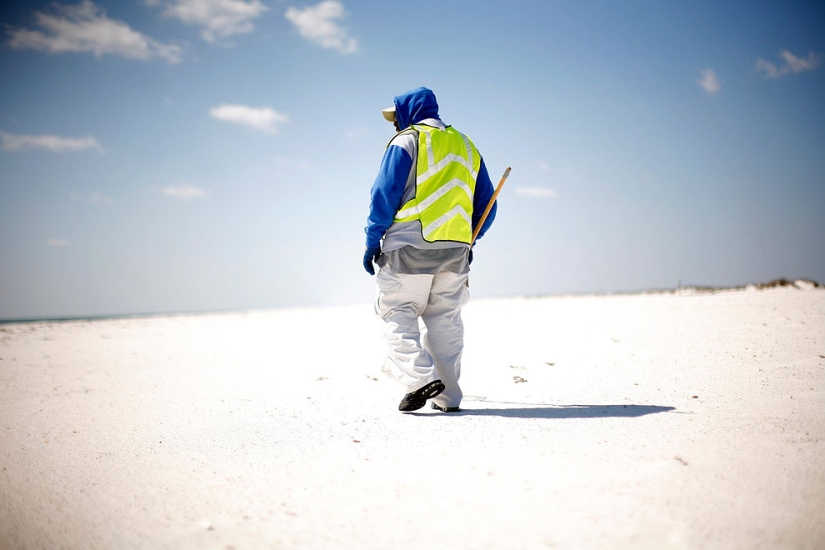
A worker scans the beach for oil residue in Pensacola, Florida, on March 10. (Eric Thayer/Getty Images)
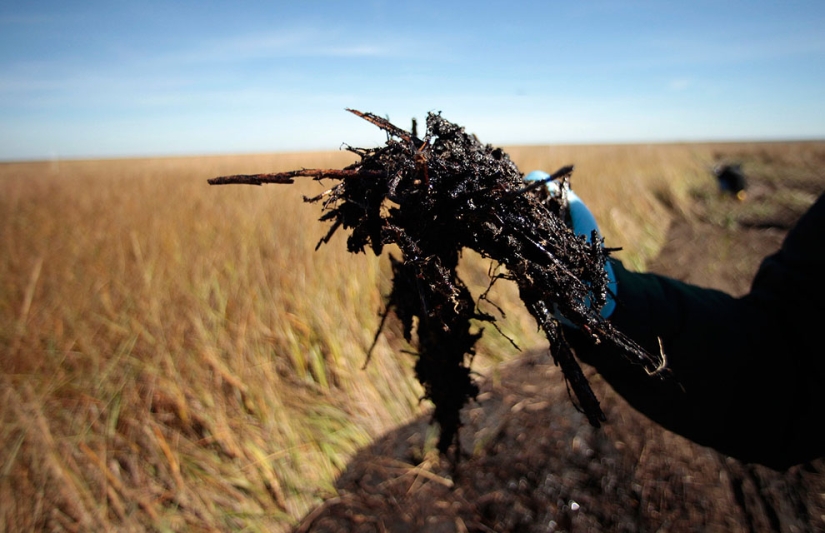
Secretary of the Louisiana Wildlife and Fishing Industry Society Robert Barham with an armful of dead grass covered with oil in Jimmy's Bay in Plackmines Parish, Louisiana. (AP Photo/Gerald Herbert)
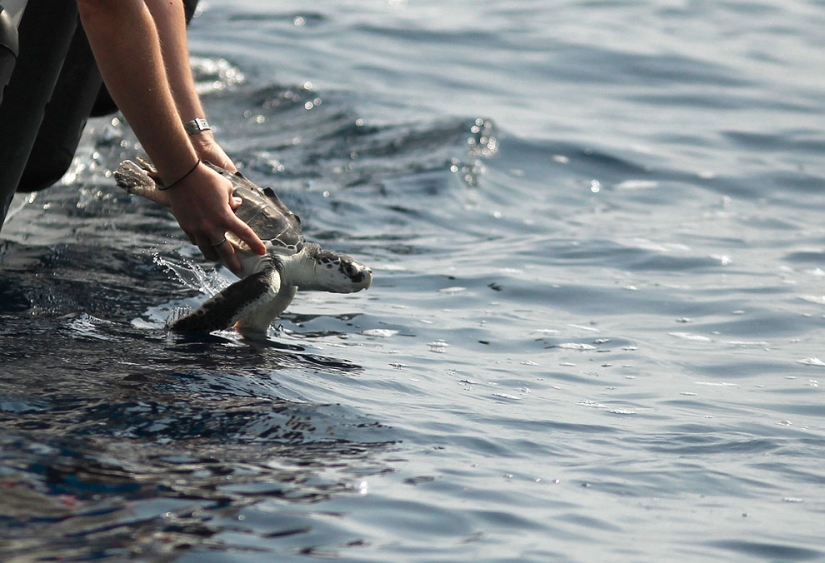
Researchers from the Audubon Institute, the National Institute of Oceanography and the Louisiana Department of Wildlife and Fishing Industry release sea turtles rescued from an oil leak back into the Gulf of Mexico 72 km off the coast of Louisiana on October 21, 2010. (AP Photo/Gerald Herbert)
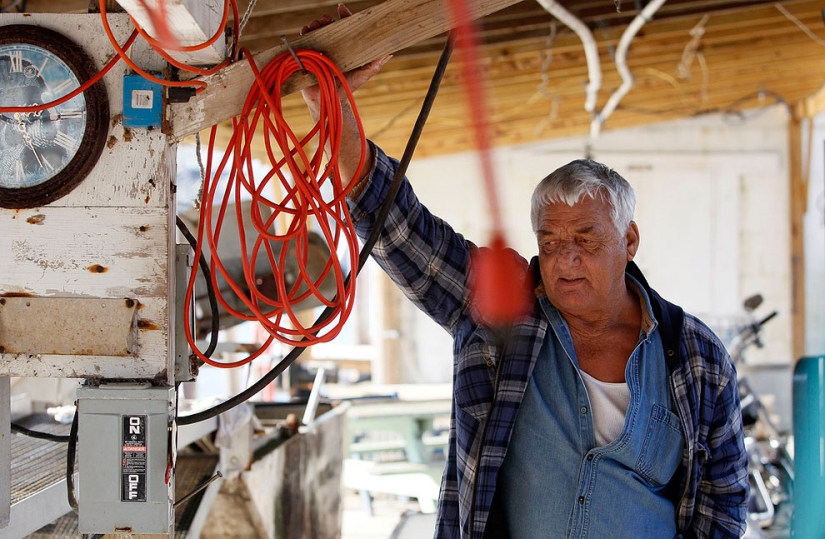
Price Elliot at a fishing spot in the fishing village of Point Aux Chesnes in Louisiana on January 28, 2011. Elliot survives partly thanks to the $65,000 that BP PLC paid him in June, compensating for business losses. Even before the disaster in the Gulf of Mexico, the American-Indian village was on the verge of collapse due to social changes and the loss of coastal territories. Now, Indians who have been fishing all their lives depend on Kenneth Feinberg, the man handing out checks for billions of dollars for damage after the disaster. (AP Photo/Patrick Semansky)
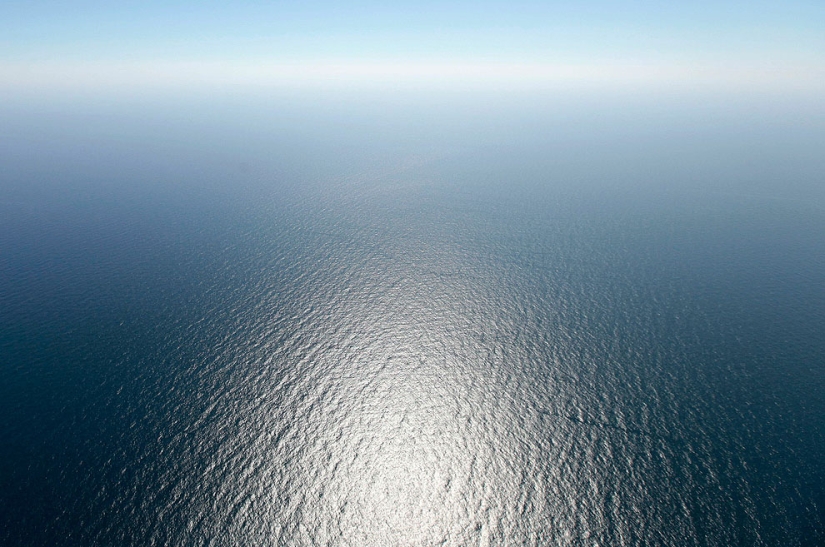
The sun is reflected from the blue water at the place where the Deepwater Horizon tower once was, almost a year later. The ugly spots of last summer turned into fading memories, as if proving that nature tends to recover. However, this is only a shiny surface, the image of which can be deceptive. (AP Photo/Gerald Herbert)
Keywords: BP | Explosion | Date | Gulf of Mexico | Oil | Consequences | USA | Leak
Post News ArticleRecent articles

It's high time to admit that this whole hipster idea has gone too far. The concept has become so popular that even restaurants have ...

There is a perception that people only use 10% of their brain potential. But the heroes of our review, apparently, found a way to ...
Related articles

Explosions of smartphone batteries and short circuits in sockets no longer become a sensation, but few people know that the danger ...

On August 17, 1988, a Tu-154B plane with 176 people on board took off from Kiev to Kuibyshev (now Samara). Among them was ...

According to the statistics of marriage agencies, every second interethnic marriage breaks up after five or six years of living ...

New Year's is a time to surprise and delight loved ones not only with gifts but also with a unique presentation of the holiday ...